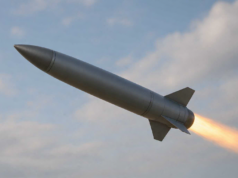Rolls-Royce has announced the successful completion of compatibility testing of 100% Sustainable Aviation Fuel (SAF) on all its in-production civil aero engine types.
The final test in this series, which involved a BR710 business jet engine, was conducted at the company’s facility in Canada.
According to the company, the comprehensive test programme included engines such as the Trent 700, Trent 800, Trent 900, Trent 1000, Trent XWB-84, Trent XWB-97, Trent 7000, BR725, Pearl 700, Pearl 15, and Pearl 10X. These tests, which involved a range of ground and flight tests, confirmed that the use of 100% SAF does not impact engine performance.
Tufan Erginbilgic, CEO of Rolls-Royce plc, expressed the significance of this milestone:
“Becoming the first jet engine manufacturer to publicly confirm all our in-production engines for long-haul aircraft and business jets are compatible with 100% SAF, is an important milestone for both Rolls-Royce and the wider aviation industry, according to the company. It’s also further evidence of our commitment to becoming a net zero company by 2050 and supporting our customers to do the same.”
Simon Burr, Group Director of Engineering, Technology and Safety at Rolls-Royce plc, added:
“This is an important milestone, not just for Rolls-Royce, but also for the wider civil aerospace industry. We hope the success of these tests provides a level of technical validation that supports those who seek to invest in the production of 100% SAF going forward.”
Mark Harper, UK Transport Secretary, commented on the broader implications:
“The world’s journey to decarbonising flight is powered by British innovation and backed by the UK Government, meaning people can continue to travel how they want, in a way that’s fit for the future. Today’s news demonstrates that Rolls Royce and the UK are global leaders in decarbonising transport, taking us one step closer to Jet Zero.”
According to Rolls-Royce, its new generation UltraFan engine demonstrator, which also ran earlier this year, is capable of operating on 100% SAF.
The company’s commitment to sustainable aviation will be further showcased in a joint effort with Virgin Atlantic, where Trent 1000 engines will power a Boeing 787 Dreamliner on Flight 100, the world’s first transatlantic 100% SAF flight. This project involves a consortium including Boeing, University of Sheffield, Imperial College London, and the Rocky Mountain Institute, sponsored by the Department for Transport.














An outstanding development in this fine British company’s quest to achieve net zero. Expect howls of opposition from the fossil fuel lobby harrumping in their clubs shortly
Yes sometimes when you hear ill informed people claim struggling companies should simply be allowed to close down, or at best its parts sold off to the highest bidder, one only has to look at what can happen when you take a somewhat more positive and enlightened course, be it RR or indeed Apple. Investment can pay off when done right to far wider benefit.
Read this a week or so ago on New Atlas but interestingly I am sure I read there that it said the FAA regs don’t actually yet allow 100% SAF to be used, something only around 40 to 50%. They did mention this flight mind and as such I wondered if there was special dispensation or it only applied to US carriers.
The Americans are traditionally reluctant to embrace technology that they didn’t invent themselves. 80% of global methane (which is 50 times more dangerous to our climate than CO2) leaks from US fracking facilities.
Mr Trump, when president, scrapped Obama legislation to control methane emissions from the oil/gas industry because the climate crisis is a Chinese hoax
“The Americans are traditionally reluctant to embrace technology that they didn’t invent themselves” this is such a lazy and much repeated line when criticizing america. the first 100% biofuel flight took place in 2008- an american company. The US military is a leader in testing sustainable fuels as is GE. Reasons for it not being certified yet are because there haven’t been enough long-term testing done. Ethanol for instance is found to decrease the life of most ICE car engines by leaving gummy deposits- not something you want to happen to your multi-million dollar jet engine. It’ll have to be tested over thousands of hours and in all environmental conditions before being accepted.
I’d be very interested in where you heard that “80% of global methane leaks from US fracking facilities”, as it sounds complete nonsense- when I googled it the closest thing that comes up is methane supposedly heats up the environment 80x more than C02. Agriculture alone is responsible for around 25% of methane emmissions.
“Ethanol for instance is found to decrease the life of most ICE car engines by leaving gummy deposits”
This sounds like big oil propaganda to me. Here in the UK all our petrol is E10 grade which is 10% ethanol, I have not heard of anyones ICE vehicles being “gummed up” by it
The fossil fuel lobby are absolute experts at putting fake news, pro-fossil fuel propaganda and anti-renewables bullshit into the worlds media. They have been doing it for decades. Clearly, they see EV’s and windfarms/solar parks harvesting free energy a threat to their business model.
Cows farting methane is far less of a contributor to global warming than the millions of tons of methane leaking from fracking facilities (“its ok, its only routine, it meets Mr Trump’s regulations”) or the absolutely vast amounts of CO2 produced as big oil flares off “excess” gas from their production fields
The problem is we seeing the same BS from green companies who now have billions invested. They shut down debate if its not their technology.
We do need to go to renewables but the facts are finally starting to surface that its not going to be easy or cheap. And yet technology on things like carbon capture or hydrogen or amonia ICEs are being dismissed as non starters as they are not mature. Yet we’re currently relying on EV technology which means 25% of the energy we put in is use to cart the battery around and we have still very little infrastructure actually support the vehicles, hardly what many would say is mature.
Just to answer my original question no passengers on board this Dreamliner flight which answers the reason the FAA are allowing it.
RR are great engineering company but to me this absurd greenwash. food crops replaced by fuel crops, how would that look?
Bio fuels can be produced for any number of feedstocks, alge being one. So their doesn’t need to be an impact on food production.
The climate communist would like nothing more than us to give up all luxuries in the name of their agenda which has little to do with climate.
Remember being involved with promoting bio fuels 30 years back, was a hard sell and certainly the food argument was a big one as was the destruction of the rainforest. Biofuel of whatever kind are certainly a way of getting from A to B more sustainably though I have heard no one claim it is an end in itself. It still has climate implications just much lower, plus there no chance that enough of it can be produced to replace Aviation fuel, indeed I think I read only one Company produces it in bulk in Europe and presently it would only be able to supply single figure percentage of demand.
Always been a great advocate of Hydrogen but it does have problems including production with green hydrogen so far very immature though it offers hope. Other forms of production other than as a sideline of another necessary process is unacceptable. Equally of course hydrogen needs to be liquefied not an easy process and held and supplied through infrastructure that will inevitably lose up to 1% per day simply because it will seep through any substance it is contained in. And in terms of bulk it provides less energy, though that isn’t a killer except in aviation sadly without big aerodynamic changes to aircraft design which are being explored. Finally though it is far,far better for the environment than alternatives there is still some question as to possible damage caused by the combustion process as it reaches the upper edges of the atmosphere that needs more study.
However can’t remember the details but there is experimentation going on with a modified form adding an extra Oxygen molecule (perhaps) or some such that that though reduces its energy a little, makes it possible to liquify at much nearer room temperature, thus is easier to store and indeed compress regaining some of that lost potential. But in the end as much propulsion as possible needs to go electric I believe as at last we are putting effort into it, and plenty new
The problem is electric also has a penalty EV for instance 25% of every charge is used just to move the battery. Solid state batteries are part of the solution but reality is yhey are as immature as hydrogen. Ammonia is being touted as another fuel. We need to let all technologies reach there full potential tbh as its more likely to be a mix.
Are you really going to get enough used cooking oil to power the entire airline industry? I am more interested in this prototype jet fuel. If you add a small amount of Hydrogen at the right point in the refining, you get a clean burning jet fuel with far less particulates (soot). That is what I would aim to adopt.
Of course not, this is just propaganda.